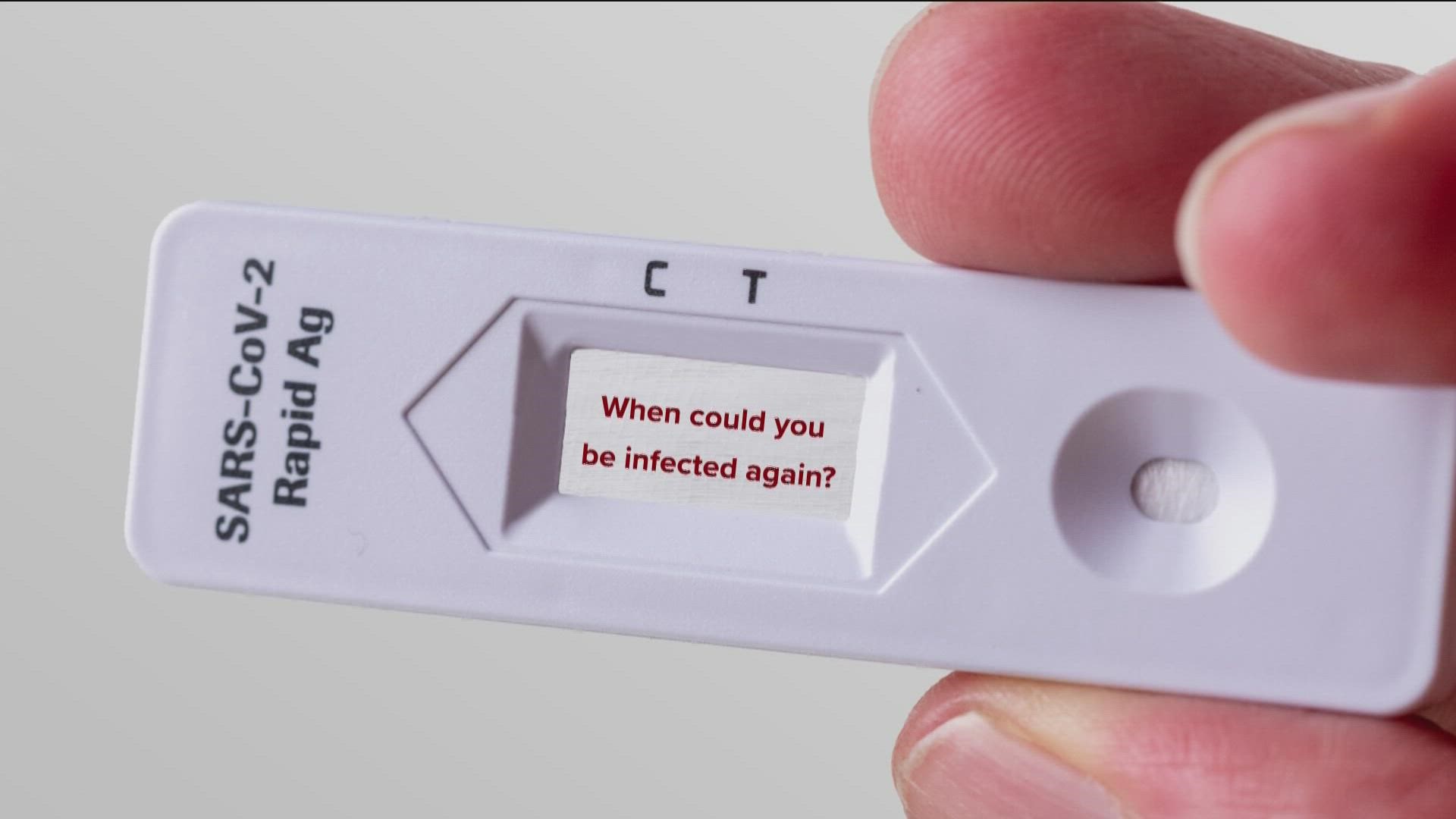DENVER — With the way COVID is making the rounds again in Colorado, we are taking a closer look at severity, reinfections and isolation guidance.
We took the questions to local experts.
When can you be infected again?
Dr. Michelle Barron, an infectious disease specialist with UCHealth, wrote:
"It is generally thought that you are unlikely to develop infection within 90 days after infection, but there are reports of individuals that had infection with omicron, that within two to 4 weeks, subsequently developed infection with BA.2 or some of the new variants. Vaccinated individuals had higher protection against reinfection but for both situations, the numbers are small."
Dr. Connie Price with Denver Health, another infectious disease specialist, said that in general, they are finding reinfection to be less severe.
"Immunity does keep the virus a little more in control, likely not spreading as much virus," said Price. "Omicron in general is a more mild infection than what we saw with previous variants, and with subsequent infections or infection after vaccination, we're seeing less severe disease."
The Colorado Dept. of Public Health and Environment (CDPHE) wrote:
"We are still learning more about how the different omicron subvariants behave and the risk of reinfection and breakthrough infection for Coloradans with prior infection or vaccination. For most Coloradans, the risk of reinfection is largely dependent on how different a circulating variant 'appears' to the immune system compared to what the immune system is familiar with, whether due to prior vaccination, previous infection, or both. These differences in the virus are caused by mutations. Not all mutations make a variant more likely to cause reinfection, but variants that more easily reinfect individuals may have a growth advantage and spread more easily."
How well do at-home tests work at catching variants?
Dr. Mark Montano with HealthOne said, in general, at-home tests are the same as the ones from the beginning of the pandemic but are still effective at picking up new variants, including omicron.
Barron added:
"The tests that we are using are the same ones developed for the ancestral strain on COVID-19 and are capable of detecting the new variants. All of the tests have so far used a highly conserved part of the SARS-CoV-2 virus genetic sequence for detection so the changes in strains has not impacted this. It is important to know that home tests continue to not be as sensitive as PCR. A positive test is in general considered a true positive, but a negative test does not necessarily mean you don't have COVID-19. PCR is still considered the gold standard. Also worth noting that if you have a positive test and you tested because you were exposed or having symptoms, serial testing in not indicated and a subsequent negative test does not negate the positive one. If you get a positive test, you should proceed with isolation. "
Of course, at-home tests are less sensitive than PCR tests.
How do you approach isolation if people in your home are falling sick at different times?
CDPHE said there are many details available for specific quarantine and isolation guidance.
"Quarantine involves staying at home and away from other people for five days after your last exposure to someone who has COVID-19, then wearing a mask in public for five more days. Avoid contact with people you live with, especially if they are at higher risk for severe illness. Wear a well-fitted mask any time you must have contact with other people you live with. If you are not able to stay separate from other people in your home who have COVID-19 and you are not up to date on all recommended COVID-19 vaccines, your quarantine period would start when the isolation period of the last household member ends. The CDC has some clear instructions for these situations on their website at
If you have tested positive for COVID-19 or have symptoms of COVID-19, you should isolate regardless of your vaccination status. Isolation means staying at home and away from other people until you are likely no longer contagious. The amount of time you should isolate for depends on how you are feeling. For some people, isolation should last five full days, followed by five more days of precautions. You can stop isolating after five full full days if you tested positive, but don't have any symptoms or you had mild symptoms, you are starting to feel better, and you don't have a fever.
Detailed instructions are available here. If you are able to stop isolating after five days, you should avoid high-risk people and settings and wear a mask around others in your home and in public for five more days after that."
SUGGESTED VIDEOS: Full Episodes of Next with Kyle Clark

